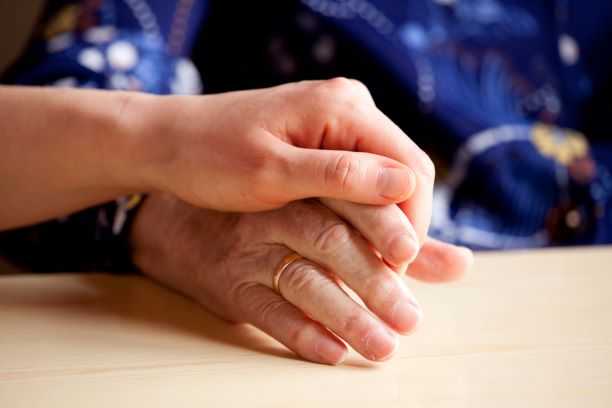An ageing and death denying society: Lessons from a hospice

By Bek Beechey, Clinical Nurse - Care Coordination, Hopewell Hospice Clinical, Wesley Mission Queensland
In a death denying society such as ours, the only certainty in life is death. It can be incredibly challenging to prepare for and conversations about death can be overwhelming to think about, let alone talk about.
Death is a confronting topic and can bring up uncomfortable emotions, which is why it’s crucial to raise awareness about hospice care and death education to help reduce these fears. This way, everyone can have the opportunity to live their life until their very last breath, comfortable and with their loved ones.
Based on my experience as a clinical nurse in a Wesley Mission Queensland hospice, I would like to encourage open conversation with our loved ones about death, the experiences of a person’s final days and the empowering choices hospices offer for end-of-life care.
I like to think of hospice care as your home when you can no longer be at home. When you enter our Hopewell Hospice on the Gold Coast, you cross a bridge over a beautiful pond and are welcomed by our heart-led staff with a friendly smile, a plate of sandwiches and warm cup of tea. Our guests are often surprised by just how different our centre is from a typical hospital environment. It doesn’t look anything like the misconceptions of a sad and uninviting place.
Hospice care staff deliver an exceptional level of care that goes beyond the physical. It encompasses the holistic needs of our guests including emotional, social and spiritual. As a team, we provide guest-centred care to find out what is important to them. For some, being pain free is key. For others, it’s about embracing their culture or writing birthday cards to their young children. And for some, they simply wish to be outside, to feel the sun and breeze on their skin. We have hosted living wakes and supported our guests with planning and writing their own eulogies. You would be surprised at just how much living happens in a hospice.
Working in the hospice space has taught me many lessons, professionally and personally. Part of my role is to connect with our guests and provide them with a space to share what is in their heart. Recently, we supported a 42-year-old lady dying of cancer and I asked her how she remained so happy during her final days. She shared with me that every day she focusses on gratitude and asks herself “Am I happy?”. If the answer was no, she made the changes that were needed. She also left these wise words: “Don’t wait for the hard times to be over to be happy. You can be happy amidst the hard.”
More education is critical to reduce fear and to help leaders in government and community organisations embrace facilities like hospices to meet the demand for good end-of-life care. Something I am becoming increasingly concerned about is the rising demand for palliative care. Reports confirm that the number of Australians aged 85 and over will be growing at 60,000 per year by the end of the decade, up from about 20,000 in 2024. This isn’t a might happen – demand for palliative care will exceed supply without a change in approach. With an increasingly aging population and growing awareness in the community, there is a strong demand for hospice care. Here at Wesley Mission Queensland’s Hopewell Hospice our services are so sought after that I have up to 10 people on our waiting list at any given time. More education is critical to help leaders in government and community organisations embrace facilities like hospices to meet the demand for good end-of-life care.
We know that death triggers complex grief, but if people start embracing and accepting it, this creates space and time to help loved ones get the support they need.
Not all of us are blessed with a choice about how and where we spend our final days, but everyone does deserve the opportunity to have their preferences respected when as they come to the end of their life.